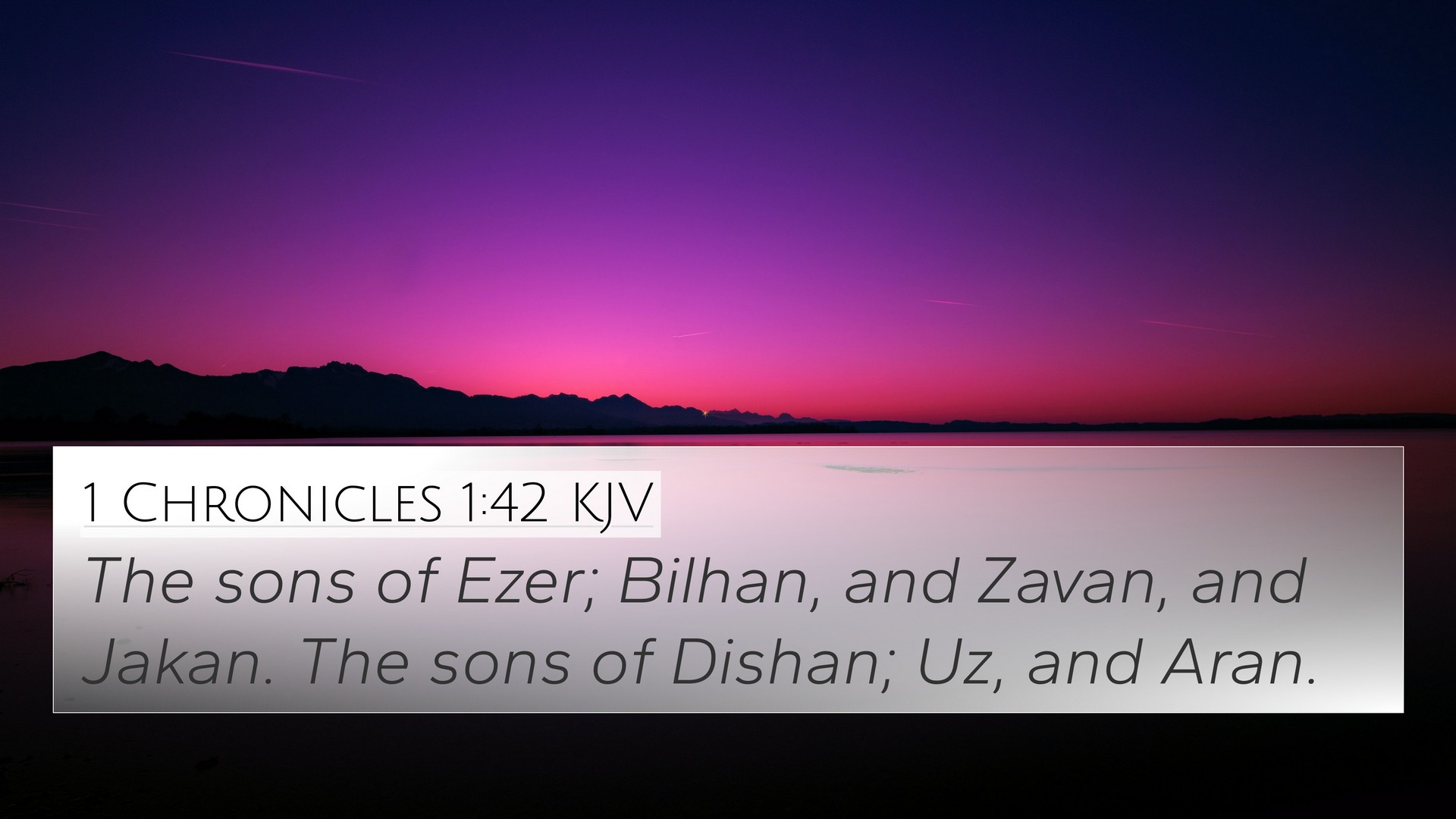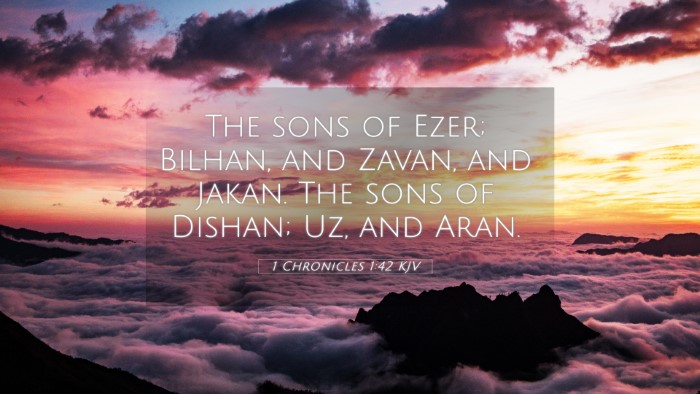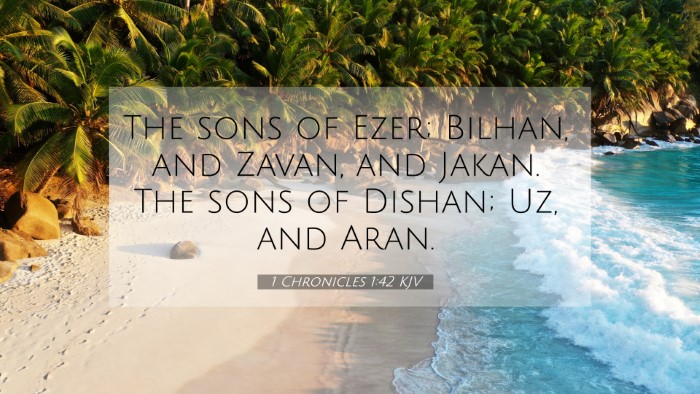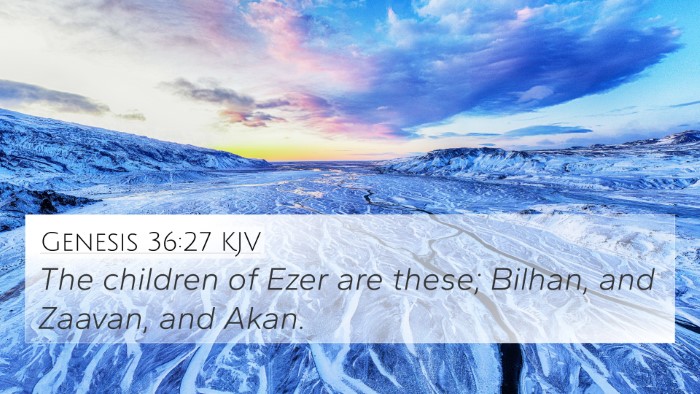Old Testament
Genesis Exodus Leviticus Numbers Deuteronomy Joshua Judges Ruth 1 Samuel 2 Samuel 1 Kings 2 Kings 1 Chronicles 2 Chronicles Ezra Nehemiah Esther Job Psalms Proverbs Ecclesiastes Song of Solomon Isaiah Jeremiah Lamentations Ezekiel Daniel Hosea Joel Amos Obadiah Jonah Micah Nahum Habakkuk Zephaniah Haggai Zechariah MalachiChapter
1 Chronicles 1 1 Chronicles 2 1 Chronicles 3 1 Chronicles 4 1 Chronicles 5 1 Chronicles 6 1 Chronicles 7 1 Chronicles 8 1 Chronicles 9 1 Chronicles 10 1 Chronicles 11 1 Chronicles 12 1 Chronicles 13 1 Chronicles 14 1 Chronicles 15 1 Chronicles 16 1 Chronicles 17 1 Chronicles 18 1 Chronicles 19 1 Chronicles 20 1 Chronicles 21 1 Chronicles 22 1 Chronicles 23 1 Chronicles 24 1 Chronicles 25 1 Chronicles 26 1 Chronicles 27 1 Chronicles 28 1 Chronicles 29Verse
1 Chronicles 1:1 1 Chronicles 1:2 1 Chronicles 1:3 1 Chronicles 1:4 1 Chronicles 1:5 1 Chronicles 1:6 1 Chronicles 1:7 1 Chronicles 1:8 1 Chronicles 1:9 1 Chronicles 1:10 1 Chronicles 1:11 1 Chronicles 1:12 1 Chronicles 1:13 1 Chronicles 1:14 1 Chronicles 1:15 1 Chronicles 1:16 1 Chronicles 1:17 1 Chronicles 1:18 1 Chronicles 1:19 1 Chronicles 1:20 1 Chronicles 1:21 1 Chronicles 1:22 1 Chronicles 1:23 1 Chronicles 1:24 1 Chronicles 1:25 1 Chronicles 1:26 1 Chronicles 1:27 1 Chronicles 1:28 1 Chronicles 1:29 1 Chronicles 1:30 1 Chronicles 1:31 1 Chronicles 1:32 1 Chronicles 1:33 1 Chronicles 1:34 1 Chronicles 1:35 1 Chronicles 1:36 1 Chronicles 1:37 1 Chronicles 1:38 1 Chronicles 1:39 1 Chronicles 1:40 1 Chronicles 1:41 1 Chronicles 1:42 1 Chronicles 1:43 1 Chronicles 1:44 1 Chronicles 1:45 1 Chronicles 1:46 1 Chronicles 1:47 1 Chronicles 1:48 1 Chronicles 1:49 1 Chronicles 1:50 1 Chronicles 1:51 1 Chronicles 1:52 1 Chronicles 1:53 1 Chronicles 1:54



